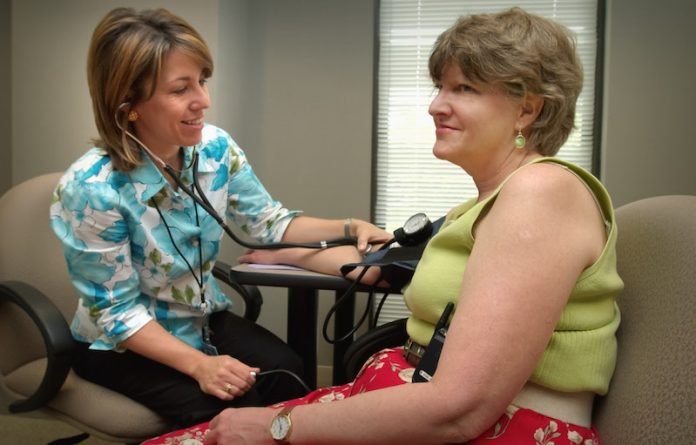
High blood pressure can damage your arteries by making them less elastic, which decreases the flow of blood and oxygen to your heart and leads to heart disease.
In addition, decreased blood flow to the heart can cause: Chest pain, also called angina.
In a study from the University of Alabama at Birmingham, scientists found that intensive blood pressure treatment targeting systolic blood pressure <120 mm Hg can lower rates of heart disease and all-cause mortality.
They assigned 9,361 people at increased risk for heart disease without diabetes or previous stroke to adhere to an intensive treatment target (systolic blood pressure <120 mm Hg) or standard treatment target (<140 mm Hg).
The researchers found that the rates of heart attacks, other heart syndromes, strokes, heart failure, death from heart disease, and all-cause death were much lower in the intensive treatment group versus the standard treatment group.
But in the intensive-treatment group, serious adverse events of low blood pressure, kidney injury or failure, and fainting occurred more frequently.
Similar patterns were seen for treatment benefits and adverse events when trial and post-trial follow-up data were combined.
The team says after the study, the achieved blood-pressure differential between the treatment groups was attenuated gradually, and more frequent heart failure was noted in the intensive-treatment group.
If you care about high blood pressure, please read studies about how tea and coffee influence your risk of high blood pressure, and vitamin B could help treat drug-resistant high blood pressure.
For more information about high blood pressure, please see recent studies that Marijuana may strongly increase death risk in high blood pressure, and this common plant nutrient could help reduce high blood pressure.
The study was conducted by Cora E. Lewis et al and published in the New England Journal of Medicine.
Copyright © 2022 Knowridge Science Report. All rights reserved.



